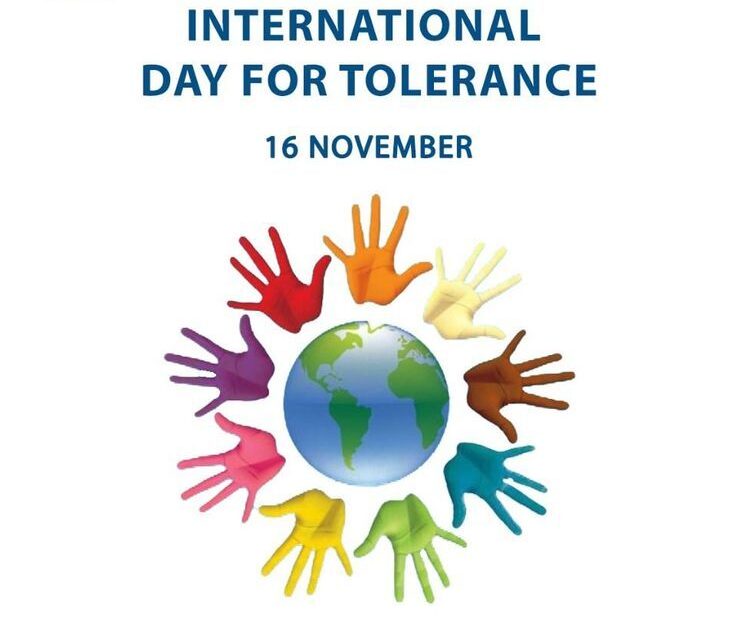🌐 Introduction: What Is the International Day for Tolerance?
In a world rife with conflict, hate, and misunderstanding, the International Day for Tolerance serves as a powerful reminder of the unifying power of empathy and acceptance. Observed every year on November 16, this day emphasizes the importance of respecting diversity, promoting understanding, and fostering peaceful coexistence.
- 🌐 Introduction: What Is the International Day for Tolerance?
- 🕰️ History of the International Day for Tolerance
- 📅 Timeline: Key Events in the History of Tolerance
- 💡 Top 9 Powerful Facts About Tolerance
- 🌈 Why Tolerance Is So Important Today
- 🎯 Objectives of the International Day for Tolerance
- 📖 How Is It Observed?
- 1. Educational Events
- 2. Community Activities
- 3. Social Media Campaigns
- 4. Corporate Initiatives
- 5. Government and UN Programs
- ✨ Heartwarming Wishes to Share
- ❓ Frequently Asked Questions (FAQs)
- ❓ What is tolerance, really?
- ❓ Why is November 16 important?
- ❓ Is tolerance about agreeing with everything?
- ❓ How can I teach my child about tolerance?
- ❓ How can workplaces promote tolerance?
- 🔍 Important Points at a Glance
- 🏡 Daily Life Impact of Tolerance
- 💡 Real-Life Applications of Tolerance
- 🏁 Conclusion: Make Every Day a Day of Tolerance
It’s not just about international diplomacy—it’s about daily human behavior, from how we treat a stranger on the street to how we handle differences in our communities.
🕰️ History of the International Day for Tolerance
📜 1993: The idea was planted during the UN Year for Tolerance, launched by UNESCO.
📅 1995: On the 125th anniversary of Mahatma Gandhi’s birth, UNESCO adopted the Declaration of Principles on Tolerance.
🗓️ 1996: The United Nations officially proclaimed November 16 as the International Day for Tolerance.
The core idea: Tolerance is not indulgence or indifference—it is respect and appreciation of diversity.
📅 Timeline: Key Events in the History of Tolerance
| Year | Milestone |
|---|---|
| 1993 | UN announces the Year of Tolerance. |
| 1995 | UNESCO adopts the Declaration of Principles on Tolerance. |
| 1996 | UN General Assembly declares Nov 16 as International Day for Tolerance. |
| 2005 | Rise in global peace and tolerance programs in response to growing terrorism. |
| 2015-Present | Movements like Black Lives Matter, MeToo, and refugee support initiatives echo the call for tolerance. |
💡 Top 9 Powerful Facts About Tolerance
Over 80 countries observe Tolerance Day in some form.
Studies show inclusive workplaces have 20% higher productivity.
Intolerance has historically fueled major world conflicts—from apartheid to genocide.
Children raised in diverse environments are more empathetic and successful in teamwork.
UNESCO defines tolerance as a moral duty, not just a political or legal requirement.
Tolerance leads to lower stress and better mental health in communities.
In 2015, UNESCO established the Madanjeet Singh Prize for the Promotion of Tolerance and Non-Violence.
Social media both spreads and challenges intolerance, showing the need for digital literacy.
Tolerance is deeply rooted in spiritual and philosophical traditions worldwide—from the Vedas to the Quran to Confucius.
🌈 Why Tolerance Is So Important Today
We live in a hyper-connected world, but that doesn’t automatically mean we understand each other better. In fact, misinformation, polarization, and hate speech have created deep divides.
Tolerance helps:
🕊️ Prevent violence and hate crimes
🏫 Build inclusive education systems
💼 Encourage ethical workplaces
🤝 Support multicultural societies
🌍 Create bridges between communities, faiths, and ideologies
🎯 Objectives of the International Day for Tolerance
Promote respect for cultural, religious, racial, and linguistic diversity
Encourage peaceful dialogue over conflict
Advocate for equal rights, especially for minorities
Educate youth on the importance of acceptance and coexistence
Inspire actions that combat hate, racism, and extremism
📖 How Is It Observed?
1. Educational Events
Schools and colleges host seminars, debates, essay competitions, and storytelling sessions on diversity, history, and peace.
2. Community Activities
NGOs and civil groups organize peace walks, art exhibitions, film screenings, and multicultural festivals.
3. Social Media Campaigns
Hashtags like #ToleranceDay, #RespectDiversity, #UnitedInDifferences trend globally with inspiring stories and awareness posts.
4. Corporate Initiatives
Organizations run diversity training, anti-bias programs, and inclusive hiring practices.
5. Government and UN Programs
Many nations issue commemorative messages or organize national events promoting unity and peaceful dialogue.
✨ Heartwarming Wishes to Share
“On this Day for Tolerance, let’s embrace our differences and celebrate our shared humanity. 🌍”
“Tolerance is the heartbeat of peace. May this day inspire unity and love.”
“Respect. Accept. Connect. Happy International Day for Tolerance.”
“Let’s teach our children the power of compassion. Happy Tolerance Day!”
“When we open our minds, we find peace. #ToleranceDay 💜”
❓ Frequently Asked Questions (FAQs)
❓ What is tolerance, really?
Tolerance means accepting and respecting differences in others—cultural, religious, political, or personal.
❓ Why is November 16 important?
It marks the UN-recognized International Day for Tolerance, aimed at promoting peaceful coexistence.
❓ Is tolerance about agreeing with everything?
Not at all. Tolerance is about respecting someone’s right to differ, not necessarily agreeing with them.
❓ How can I teach my child about tolerance?
Start by modeling behavior, reading diverse stories, visiting multicultural spaces, and encouraging open conversations.
❓ How can workplaces promote tolerance?
By adopting inclusive policies, offering bias training, and celebrating diversity in leadership.
🔍 Important Points at a Glance
🗓️ Date: November 16
🕊️ Goal: Promote peaceful, diverse, and inclusive societies
📜 Adopted By: UNESCO, United Nations
🎗️ Focus: Education, human rights, respect, non-violence
📣 Activities: Awareness campaigns, education, art, and dialogue
🏡 Daily Life Impact of Tolerance
At Home:
Promotes respectful conversations, even when opinions clash.
Creates emotionally safe environments for kids and elders.
At School:
Reduces bullying and improves peer relationships.
Builds a foundation for empathy, cooperation, and global citizenship.
In Society:
Leads to lower crime rates, better integration of migrants, and stronger democratic systems.
In Mental Health:
Living in tolerant societies reduces stress, enhances mental wellness, and promotes a sense of belonging.
💡 Real-Life Applications of Tolerance
Accepting that a co-worker follows a different faith and respecting their holidays.
Standing up when you witness racism or discrimination.
Teaching children to play and learn with peers from diverse backgrounds.
Embracing intercultural friendships and learning new perspectives.
🏁 Conclusion: Make Every Day a Day of Tolerance
The International Day for Tolerance is more than a UN observance—it’s a lifelong human mission. Whether at home, work, or online, each of us plays a role in shaping a more peaceful, empathetic world.
In today’s age of rapid opinions and digital echo chambers, tolerance offers a powerful antidote—a chance to listen, learn, and live in harmony.








